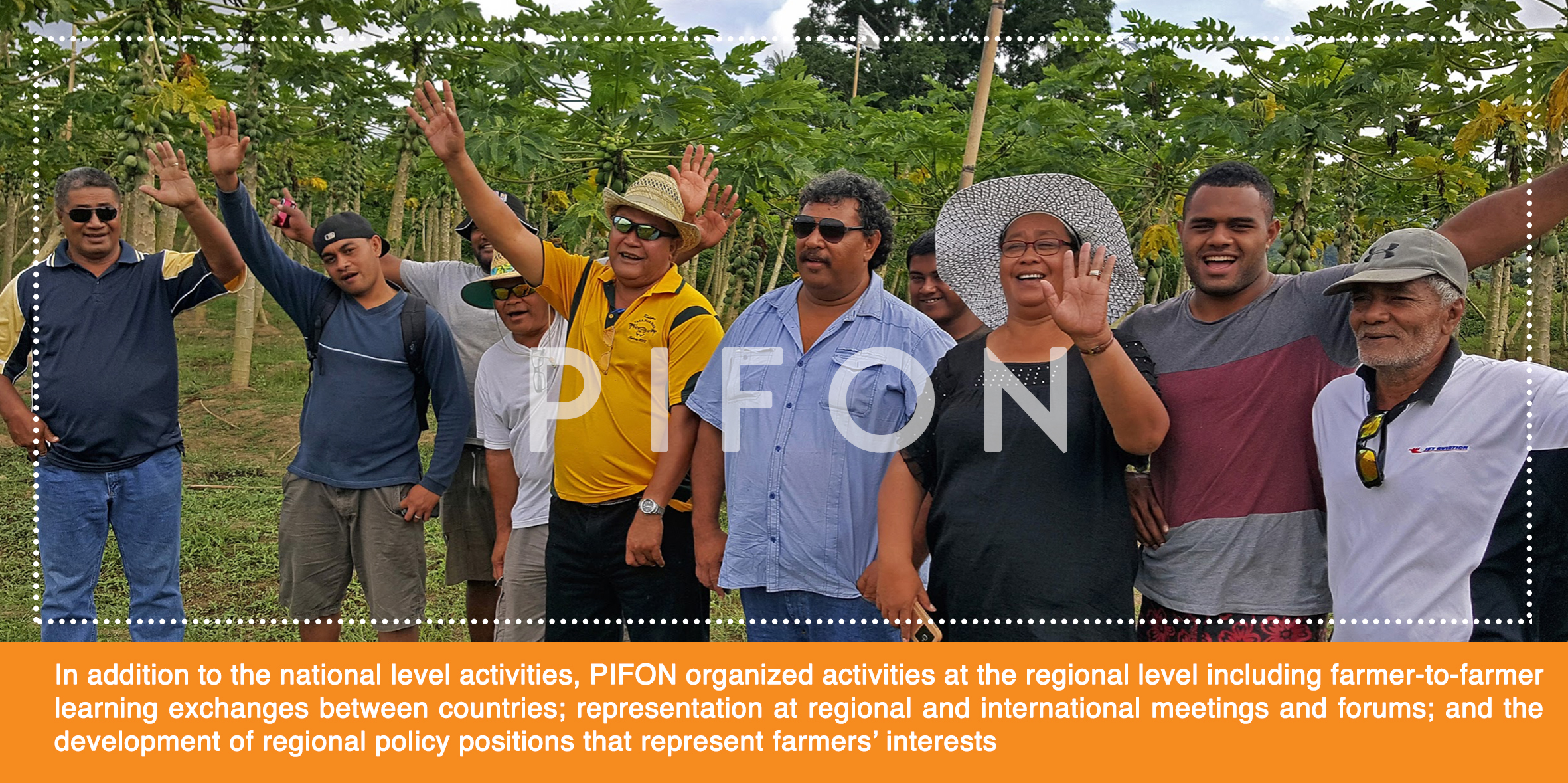October 2021
Capacity Building Reflections of Pacific Farmer Organisations

Until recently, farmer organisations were a rarity in the Pacific Islands.
Governments largely monopolized the roles of agricultural extension, research and commodity marketing, which stifled the development of effective farmer organisations.
This approach is changing with the realization that government structures have not always been effective in providing these services and an increasing acceptance that there are alternative ways to support farmers in their income generating endeavors.
It is now widely accepted that farmer organisations in the Pacific Islands will need to play a critical role in empowering rural people to take advantage of economic livelihood opportunities.
The Pacific Island Farmers Organisations Network is the Pacific umbrella organisation for farmer organisations. Ot exists to create linkages between national farmer organisations and to improve the flow of relevant information and resources that facilitate the participation of rural households in income earning agriculture.
In the Pacific sub-region, the Pacific Island Farmers Organisation Network was selected to be responsible for overall implementation of MTCP2, where US$1.8 million was allocated across 5 years of the programme.
Three hundred and fifteen national and local farmer organisations directly benefited from this funding. In addition, it is estimated that through the Pacific Island Farmers Organisation Network, indirect benefits reached 21 national farmer organisations across 9 countries, which links with hundreds of local farmer organisations, representing around 80,000 farmers.
Programme funding flowed through Pacific Island Farmers Organisation Network out to seven national farmer organisations, who were chosen to implement at the national level in Fiji, Papua New Guinea, Samoa, Solomon Islands, Timor Leste, Tonga and Vanuatu.
Ninety percent of the funding allocated to the national level was used for ‘boots on the ground’ activities with farmers. These activities were determined by the national farmer organisations, based upon their identified national priorities. Where needed, the Pacific Island Farmers Organisation Network provided additional support to implement these national level activities.
In addition to the national level activities, the Pacific Island Farmers Organisation Network organized activities at the regional level, such as farmer-to-farmer learning exchanges between countries; representation at regional and international meetings and forums; and the development of regional policy positions that represent farmers’ interests.
It is important to note that these implementation of MTCP2 in the Pacific was through existing farmer organisations, with their own strategic plans and priorities.
Implementation, therefore, was not programme-led, but rather fitted into the orientation and strategies of the Pacific Island Farmers Organisation Network and its members. It was farmer organisation priorities that identified the activities to be supported through the programme.
As well as very specific, targeted support that farmers in the region received as a result of MTCP2, significant progress was made integrating Pacific farmer organisations in International Fund for Agricultural Development programs. Critical to this integration was the relationship developed between the Pacific Island Farmers Organisation Network and the International Fund for Agricultural Development staff in charge of the Pacific.
This important relationship is reflected in the fact that Pacific Island Farmers Organisation Network hosted the International Fund for Agricultural Development Country Program Review in 2015, which allowed firsthand interaction between Pacific Island Farmers Organisation Network and all the active International Fund for Agricultural Development projects in the region.
